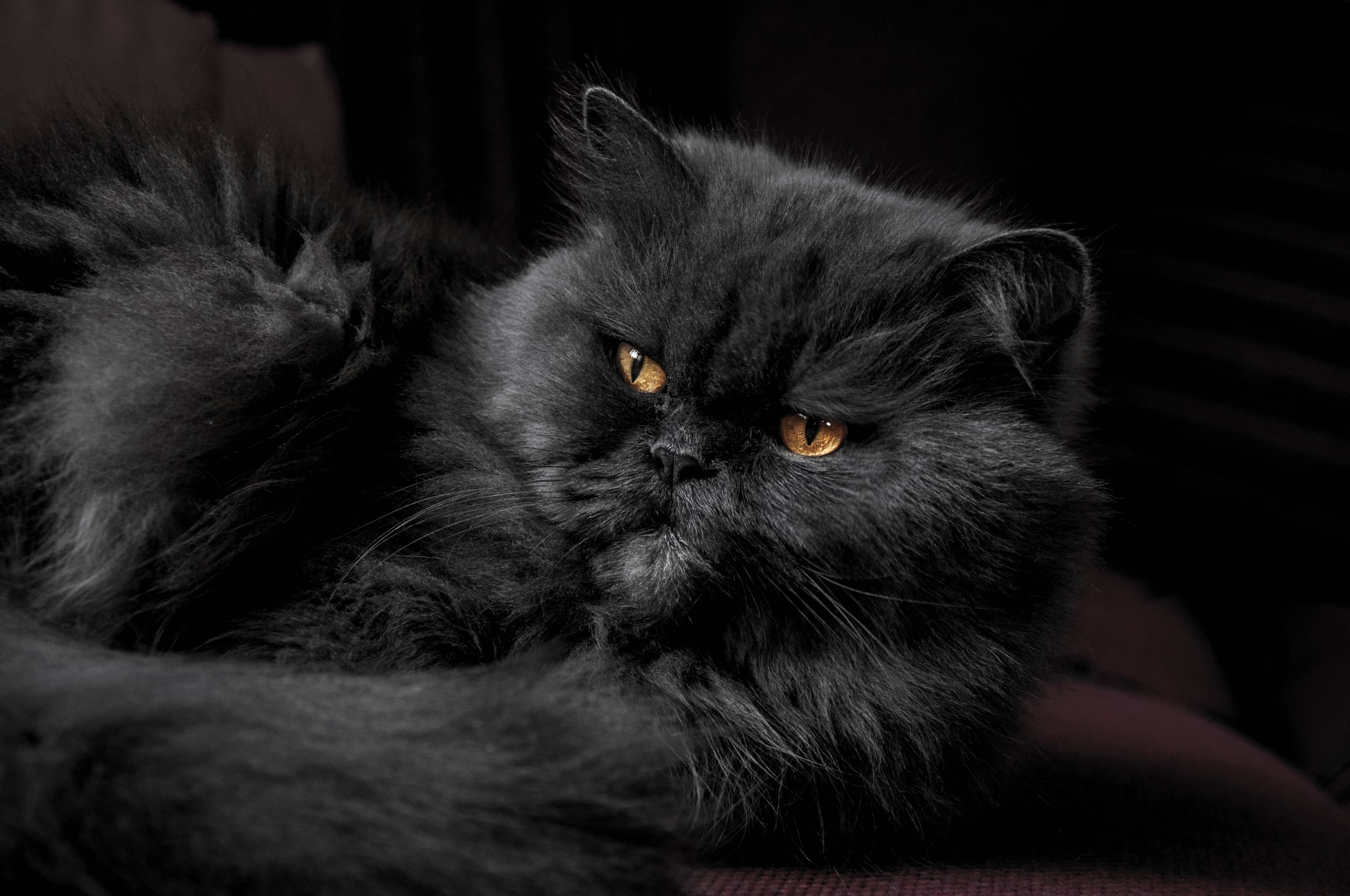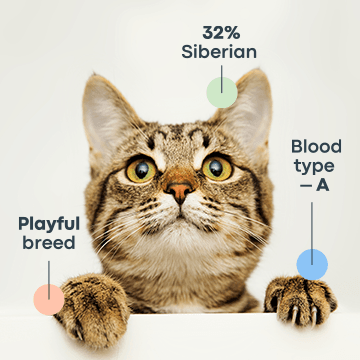The Lifespan of Persian Cats
The average Persian cat lifespan indoor is influenced by various factors, both intrinsic and extrinsic. Understanding these factors can empower cat owners to make informed decisions that contribute to their feline friend's longevity. While genetics undoubtedly play a substantial role, there are other aspects such as nutrition, health care, grooming, and environmental considerations that are equally crucial.
There is another case that should be also discussed - a teacup Persian cat lifespan. Teacup Persian cats, often referred to as "teacup" due to their small size, are not a recognized breed by major cat breed registries. The term "teacup" is often used informally to describe extremely small Persian cats that are bred to be miniature versions of the standard Persian breed.
Because teacup Persian cats are not a standardized breed, there isn't a specific average lifespan associated with them. However, it's important to note that breeding for extreme size can lead to health issues in cats, as can be the case with other "miniaturized" or "designer" breeds. Remember that the average Persian cat's lifespan is around 12 to 16 years, and factors such as genetics, health care, nutrition, and environment play significant roles in a cat's overall longevity.
Factors Influencing the Lifespan of Persian Cats
Genetics: Just like humans, genetics have a considerable impact on a Persian cat's lifespan. While some cats are genetically predisposed to live longer, others might face inherent health challenges. Responsible breeding practices can mitigate certain genetic health concerns, ultimately contributing to a longer life.
Nutrition and Weight Management: Proper nutrition is paramount to a Persian cat's well-being. A balanced diet, rich in essential nutrients, supports their overall health and helps prevent obesity. Obesity can significantly shorten a cat's lifespan and increase the risk of various health issues such as diabetes, joint problems, and heart disease.
Health Care: Regular veterinary check-ups are essential to catch potential health issues early. Persian cats are prone to certain conditions, including kidney disease and respiratory problems. Early detection and proper management can significantly extend a cat's life.
Exercise and Mental Stimulation: While Persian cats are known for their laid-back demeanor, it's important to engage them in regular play and exercise to maintain a healthy weight and provide mental stimulation. Interactive toys and engaging activities can prevent boredom and promote an active lifestyle.
Grooming and Hygiene: The luxurious coat of a Persian cat requires meticulous grooming to prevent matting and skin issues. Regular brushing not only maintains their appearance but also minimizes the risk of hairballs and skin infections, enhancing their overall quality of life.
Environmental Enrichment: Creating an enriching indoor environment is crucial for a Persian cat's mental and emotional well-being. Providing scratching posts, climbing opportunities, and cozy hiding spots can prevent stress-related issues and promote a longer, happier life.
Nutrition and Health Care for a Long-Lived Persian Cat
The saying "you are what you eat" holds true for our feline companions as well. A balanced and tailored diet is the foundation of a long and healthy life for Persian cats. High-quality commercial cat food, formulated to meet their specific nutritional needs, should be the primary source of sustenance. Consult your veterinarian to determine the appropriate portion sizes and feeding schedule based on your cat's age, weight, and activity level. Additionally, ensure a consistent supply of fresh water to keep your cat adequately hydrated.
Managing Common Health Issues in Persian Cats
Persian cats are predisposed to certain health issues, and being vigilant about their well-being is essential. Kidney disease, a prevalent concern in older cats, can be managed through a combination of a kidney-friendly diet, proper hydration, and regular veterinary monitoring. Respiratory problems, often linked to their flat faces, can be addressed by keeping the environment free of irritants and pollutants. Regular check-ups can help detect these issues early, enabling timely intervention.
Grooming and Hygiene: Key to a Healthy Persian Cat
The stunning long coat that characterizes Persian cats demands dedicated grooming efforts. Regular brushing not only prevents tangles and matting but also minimizes hair ingestion, which can lead to potentially harmful hairballs. Grooming sessions also offer an opportunity to inspect your cat's skin for any abnormalities. It's important to clean the facial folds gently to prevent dirt buildup and potential infections.
The Importance of Regular Vet Checkups for Your Persian Cat
Routine visits to the veterinarian are fundamental to ensuring your Persian cat's well-being. These check-ups go beyond vaccinations; they allow your vet to perform a comprehensive physical examination, monitor your cat's weight and body condition, and discuss any concerns you might have. Catching health issues early greatly increases the chances of successful treatment and a longer life for your feline friend.
Environmental Factors Affecting the Lifespan of Persian Cats
Creating an enriching indoor environment for your Persian cat is crucial. Avoid exposing them to harsh weather conditions, as their delicate respiratory systems can be compromised. Provide ample opportunities for mental and physical stimulation, and ensure they have cozy, quiet spaces where they can retreat and feel safe. Minimize exposure to household hazards and toxins to prevent accidental poisoning.

Tips for Enhancing the Lifespan of Your Persian Cat
Balanced Diet: Feed your cat a well-balanced diet that meets their nutritional needs without overfeeding. Obesity is a significant threat to their longevity.
Regular Exercise: Engage your cat in play and exercise to maintain a healthy weight and prevent boredom.
Grooming Routine: Establish a regular grooming routine to maintain the health of their luxurious coat and skin.
Stress Reduction: Create a stress-free environment by providing enrichment and minimizing changes that may cause anxiety.
Routine Veterinary Care: Schedule regular vet check-ups to monitor their health, catch issues early, and stay up-to-date on vaccinations.
Hydration: Ensure access to clean and fresh water at all times to support their kidney function.
Conclusion
In the world of feline companions, Persian cats hold a special place with their distinctive beauty and endearing personalities. To ensure these charming companions enjoy the longest, healthiest lives possible, a holistic approach to their care is imperative. From addressing genetic predispositions to maintaining a well-balanced diet, staying vigilant about their health, and providing an enriched environment, the efforts invested in their well-being are rewarded with years of joyful companionship. By understanding the factors that influence their lifespan and proactively addressing their unique needs, Persian cat owners can look forward to sharing their lives with these delightful creatures for many years to come.
Frequently Asked Questions
What is the average lifespan of a Persian cat?
The average lifespan of a Persian cat is around 12 to 16 years.
When do Persian cats stop growing?
Persian cats typically stop growing and reach their full size between the ages of 1 and 1.5 years.
What factors can influence the lifespan of a Persian cat?
Factors such as genetics, nutrition, health care, exercise, and environment can influence the lifespan of a Persian cat.
Do Persian cats have a shorter lifespan compared to other cat breeds?
Persian cats generally have a lifespan similar to that of other cat breeds of their size, but their flat faces can make them prone to certain health issues that might affect their lifespan.
What is the role of genetics in the lifespan of Persian cats?
Genetics play a significant role in the lifespan of Persian cats, as they can determine predisposition to certain health conditions and overall longevity.




